Q: What led to your adoption decision? I was at a point in my life where I was separated from my then husband, basically a single mother with no job, no work experience, living at home with my parents, and no clue what I was going to do with my life. I wasn't prepared to bring another kid into this world when my life was such a mess. I had briefly looked into getting an abortion, but couldn’t afford one without asking for money. Being a mom already I decided I couldn't go through with killing a baby just because I was pregnant at an inconvenient point in my life. I had talked to my mom about it and she said to contact the Pregnancy Center in [my home town]. Q: Did you feel prepared to walk through that decision? I didn’t know what to expect as I didn’t know much about the adoption process other than what I watched in the movie Juno (haha!). I just went into it with an open mind. I had already made up my mind about it so whether or not I was prepared I was going through with it. Q: What did your Case Worker do to prepare you? [My Case Worker] was awesome. She was so nice and understanding. I could tell she had been doing this a long time because she was so caring, supportive, and knew exactly what to do and say when things got difficult. She gave me so much information about adoption and the process, and was so easy to work with. She was really my rock when we met the adoptive parents for the first time.
and they were all very supportive too. I kind of announced it on Facebook the Easter before I had her (like 4-6 weeks before my due date), and had an amazing outpouring of love and support with my decision. There were a few people who weren’t very nice about it though.
Q: How did you choose a family? I got profile booklets to look through. I looked for a Catholic family, since I was Catholic, so I got only catholic family profiles. Their profile caught my eye because so many of their pictures were family orientated, they were candid [and] really showed their love for life. And they traveled, everywhere. I've always wanted to travel and see the ocean and I wanted this baby to be able to see everything I've ever wanted to see. Meeting them really cemented my decision. They were open and honest, and loved me. Q: Describe your relationship with your child & her adoptive parents? Almost fairy-tale like. I never expected to gain a whole new side to my family like I did with them. Their families were so open and accepting of me and my family. We talk on a regular basis and they send me pictures all the time. I get to talk to my daughter on the phone. It’s just amazing. I couldn't ask for a better relationship. Q: What did the adoptive family do to support you & make you feel loved? They came to all my appointments after we first met, met my family and endured an interrogation from my little brothers. They were able to stay in a room next to mine in the hospital and gave me all the time I wanted with her, then called a day or so after I was discharged from the hospital to see how I was doing, if I needed anything, and to thank me for giving them such a blessing. They've been so supportive though all my schooling, and just keep my family and I involved in what's going on in their lives. Q: What is one thing adoption has taught you? How misunderstood adoption is. So many people assume that the reason for adoption is a negative one...that the baby isn’t wanted or loved, that the mother is addicted to drugs, or a teenager, or that the decision was forced. It may be the case in some cases, but no one realizes the thought process behind the decision, the emotions that the birth mother goes through, or the amount of ridicule they go through from some of society for giving their baby away because other people "could never just give their baby away to strangers". They don't realize how intensely LOVED that little baby is to have that mother make the incredibly self-less decision to give that child a chance at a better life. A life they couldn’t give that child themselves. They have no clue about the struggle that mom had to go through to make that decision. For me, it was an easy decision, but I know that's not the case for other birth moms. I feel like I got very lucky with my adoption experience, and I wish there was more support for the birth mothers who struggled, and still struggle with their decision. -CAS Birth Mother (placement about 8 years ago) TONIGHT! 11/20 Birth Mom small group, 5:30-6:30pm at FM Area Foundation. Next year's dates:
0 Comments
Brave Love is an organization we have been blessed by through their video content and beautiful stories shedding light on a birth parents' loving decision. We use their videos when we speak about current adoption practices and positive language. Some of our adoptive families have purchased gifts from their shop and we are grateful for this pro-adoption movement. We spoke with Laura, their executive director, about being an agency partner. If you look at their map, North Dakota is not represented and we would love to be that beacon of hope for pregnant women who stumble across Brave Love looking for another option for their child. This partnership includes an annual fee of $600 and we would love to make that commitment, but we need your help. Would you consider coming alongside us in this partnership with Brave Love? Co-sponsors investing up to half the cost would really help make this commitment possible for our ministry. Donate now or contact us at 701-237-4473 if you have questions.
Hannah's Story from BraveLove on Vimeo. One of our birth mom clients wrote this article that brings a very personal perspective to the stigma felt by birth moms who choose life and a loving couple to raise their child. We hope you find this enlightening and can reflect on how we each might encourage life in our community.**Why Birth Parents are Shunned While Adoptive Parents are Praised 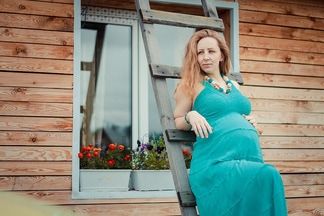 People are typically surprised when they discover I have had a child. They are even further perplexed when I inform them that I chose adoption for my daughter. After the initial shock wears off, they often begin spewing out generic statements of praise such as, “You’re so brave,” or “What a selfless choice.” And although the words they speak are kind, sometimes I can’t help but notice a bit of a false or forced tone to them; almost as though they are only saying it because that is what is polite and not because that is how they genuinely feel. In fact, I am not the only person who has noticed this phenomenon, which leads me to believe that society holds a double standard when it comes to adoption. There seems to be a preconceived, negative view of birth parents who chose adoption, but a largely positive view of the families who choose to adopt the child. Part of the blame can easily be placed on the history of adoption. The practice of raising another individual’s child as one’s own actually goes back all the way to the times of ancient Egyptians, Greeks, and Romans. According to E. Carp in his book, Family Matters: Secrecy and Disclosure in the History of Adoption (1998), in an attempt to carry on their bloodlines, families would adopt a male child from another family and raise him as their own (pg. 3). Toward the 16th century, people started changing their views on this practice; any infertility was heavily scrutinized by the community and any means of forming a family outside of natural birth was deemed “Un-Christian”. The views of adoption really started to head south around the 1800s, when parents who were unable to provide for their children adequately sent them to live in orphanages and almshouses, or were taken there as an attempt to protect them from their home life. As many of us know today, the orphanages during that time were highly inadequate and the children often faced multiple forms of abuse. Despite these horrendous truths, unwed women at the time who were facing an unexpected pregnancy were often forced to either get married before the child was born or place it for adoption. In an interview with Lisa Smith*, now an adult with children of her own, she discussed her mother’s experience of having her child removed from her, despite her wishes to keep it; She didn't want to adopt my brother out. She was forced to. That's why she hid her pregnancy with me. She wasn't going to lose another child. She became an alcoholic along with my step-father. She mentions my brother sometimes and I can still see the hurt in her eyes and she is now 74. In her article, “The Case Against Adoption: Research and Alternatives for Concerned Citizens”, Jessica DelBalzo insists that in most instances, adoption agencies pressure pregnant women into choosing adoption so that they can continue their business and earn their paychecks. A study from Baylor University was conducted last month by Elissa Madden, PHD, Scott Ryan, PHD, Donna Aguiniga, PHD, Olga Verbovaya, MSW, Marcus Crawford, MSW, and Chandler Gobin, BA, about the different counseling experiences that birth mothers had. They were surprised to discover that there were many mixed feelings; however, several women were dissatisfied with the level of counseling they received and many felt that they were unprepared for the termination process. Hearing stories like these, it is easy to understand why someone would be quick to judge birth parents and the adoption process in general. In an interview with D. Overmoe and T. Bloch from Christian Adoption Services (an adoption agency in Fargo, ND), the two insist that, although they are not able to vouch for all agencies, it is never their intent to pressure an individual into something they are not comfortable with; whether that be the birth mother, birth father, perspective families, or anyone else involved in the process. They also want to make sure that the birth family is able to get the help that they need in order to be ready for such a difficult decision. Their organization likes to visit with the birth mothers at least once a week to make sure everything is going smoothly and help them cope with any grief or stress that they are experiencing. They admitted that it is easier to form these kinds of relationships because they are a small organization. 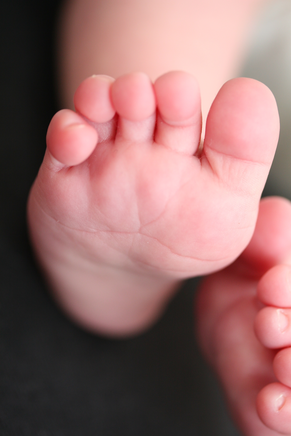 So you might be asking yourself, “why do birth mothers even choose adoption?” I, like numerous others who chose adoption, was simply not ready to be a mother, both mentally and financially. I had just decided to go back to school, was working part-time at two jobs and still living paycheck to paycheck, and I wasn’t ready for all of the responsibilities that come with raising a child. In another interview conducted with Andrew Campbell*, now in his 20s, he stated “My parents [placed me] for adoption when I was born because my sister was only three months old when my mom got pregnant, but after I was born and they gave me to the family, they [biological parents] took me back. I think they [adoptive parents] had me for like a week, maybe two.” He went on later to say, “It makes people ask a lot of questions about a topic that most people will never probably feel comfortable talking about. Whenever I told somebody that I was [placed] I've always gotten sympathy.” The key word that stuck out to me when he said this was "sympathy". Society these days automatically associates adoption as a sad, negative process, when in most instances it is done with the child in mind as an attempt to give them every opportunity that the birth parent couldn’t provide. Overmoe proclaimed, “When a lot of people think of adoption, they think of foster care where it wasn’t a choice and [the child] was removed from the home due to drugs, etc.” The two also described how some view open adoptions as a threat because, if the mother didn’t want the child in the first place, why should she get to visit now? To counter this argument, the U.S. Department of Health and Human Services, Administration for Children and Families, Administration on Children, Youth, and Families, and Children’s Bureau teamed up to produce an article on the Child Welfare Information Gateway website entitled Impact of Adoption on Birth Parents, in which they mention a study by S. M. Henney, S. Ayers-Lopez, R. G. McRoy, and H. D. Grotevant (2007) where they determined, “Birth parents in an open adoption have been shown to have better post-adoption adjustment, increased satisfaction with the adoption process, and better grief resolution” (par. 22). The amount of openness in an adoption is often dependent on the birth mother and the adoptive family, but most find that, although it may be difficult at first, it is easier in the long run to have an open adoption because then you don’t have to wonder about how the child is doing, what they look like now, and what sort of person they have grown into. However, they also discuss some of the other hardships that birth parents experience; such as struggling to find their place in the child’s life, difficulties in later relationships and with later children, and challenges with their personal identity (whether or not they are considered a parent, etc.). I chose to have an open adoption and I believe it has really helped me heal and it has lessened the grief knowing I could see my child again soon. 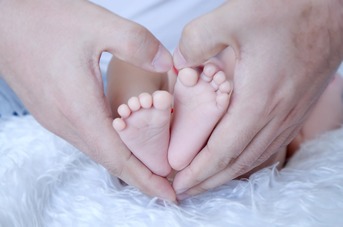 Another stigma often associated with birth mothers is the idea that they don’t want or love their child because they are choosing adoption. I can’t speak for anyone other than myself, but I know that for me, placing my daughter was easily the hardest decision of my life up to this point. When asked in a personal interview about her experience, Jane Doe*, a birth mother whose child is now 13, stated, “I did get comments from people asking if I loved my baby since I was choosing adoption. … People act like it's the worst thing that could happen.” Katie Davidson*, a young mother who chose to keep her child, shed some insight on society as a whole by declaring: People are so quick to judge on this subject because they usually don’t have a clue what’s going on and then the mother looks like they are a bad person. But you know if that mother would have kept the baby they would have judged that too. I have learned one thing, and that is no matter what your choices are; whether it's adoption, abortion, keeping baby, breastfeeding, formula etc., we will always be degraded by someone. To reinforce Davidson’s statement, Raina Kelley quoted Adam Pertman, the director of Evan B. Donaldson Adoption Institute, in her article, “Why Birth Moms Deserve Respect”, as saying, “Our society has lifted much of the stigma of single motherhood, but still finds it difficult to support a woman who is, as they see it, abandoning her child” (par. 5). People are so focused on what happened in the past that they don’t even realize that times have changed and what used to be a terrible sentence for a child is now a wonderful opportunity. So what can we do to change the views on adoption? The answer is actually fairly simple; educate others. One of the biggest reasons why birth parents are looked down upon is because they are simply misunderstood. If we can inform others that adoption has changed since the 1800s, that it’s not just children being forcefully removed from their homes, that their biological parents were often doing what they felt was best for their child, then maybe society would change their views on them. Overmoe and Bloch spend a portion of their time going around to local high schools for the sole purpose of educating students about adoption. The two discuss how, especially with debates over abortion in full swing, you see people arguing pro-life, but never even mentioning the idea of pro-adoption. This gives the impression that, when faced with an unexpected pregnancy, your only options are abortion and parenting, which is not the case. The duo hopes that by informing students of all their options, they can better make a decision that works for them. Another easy way to help birth parents is to provide support groups. It is important to grieve properly in difficult situations such as this, and support groups can help birth parents realize that they are not alone in what they are experiencing. It is relieving knowing that others have faced what you’re facing and they have come out on the other side still in-tact. According to their studies, Madden, et. all suggest that birth parents who received adequate grief counseling were more at peace with their decision and overall, had more positive feelings toward adoption. We have support groups for alcoholics, suicidal individuals, those dealing with cancer, and people with Alzheimer’s, so why not have support groups for birth parents? These two simple steps aren’t going to magically solve everything right away, but they are an excellent place to start. The most important thing is to talk about adoption, get it out of the shadows. We need to make people see that it isn’t a dirty thing that needs to be covered up and hidden, it is a gift of life; both to the child and to the family who might not have otherwise been able to have a child of their own. We need to recognize that, while it is a remarkable decision to raise another person’s child and take on that responsibility, it is also a remarkable decision to allow someone to raise your child as their own. Choosing to place your child for adoption is difficult, having to live with that decision shouldn’t have to be. *Names were changed to protect anonymity ** This article has been republished with the author's consent. The opinions expressed in this article are personal, and not necessarily the perspective of Christian Adoption Services. Emphasis ours. Be sure to come back for next week's post with Adoptive Family resources!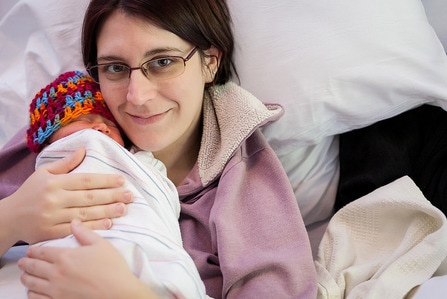 Natalie came to our office pregnant with her third child, and without a permanent job or housing. She didn’t have custody of her first two children and working with Christian Adoption Services was a proactive step toward making a loving decision to seek the best future for her child. Natalie met with us over several months and spoke with her case worker about what she would like to provide her child. She carefully selected a family to meet and invited them into the process of Doctor appointments and preparing for placement of the child in their home. She had an opportunity to grieve and discuss goals for her future and the relationship she would like to have with her son. This was a chance for Natalie to have options; she chose the parents her son would call mom & dad and she chose to provide for his needs in a way she did not foresee being able to herself. Natalie avoided having her rights involuntarily terminated and having little control in the placement and future of her son. She put aside her own desires out of love for him… The parents we work with come from a wide range of circumstances and though multiple factors make them so different from each other, something they all have in common is that they love the baby and are thinking ahead to the life they want for their child. Natalie knew she didn't have the financial stability or supports to provide what she knew her little guy needed. Statistics show that the poverty rate for single-mother families in 2013 was 39.6%* and nearly 22% single mothers had no health coverage in 2013.^ It is hard to look ahead when you are stuck in the middle of a difficult situation. No one expects to have their rights involuntarily terminated and county social services to dictate who will care for their child. When a client has a history of working with social services, it is all the more crucial to understand the opportunity to choose a different future for their child and empower them to learn about creating an adoption plan. However, the most recent data** shows that over 400,000 kids are in the foster care system. We know this is a serious issue and we want to honor the families who welcome foster care placements. We encourage foster care adoption and support this month of awareness. It is an important effort in decreasing the number of kids waiting for placement. As an agency, we wonder, how can we prevent more children from entering the foster care system? The root issues run so deep and we know there are many great organizations working towards these issues. Instances of addiction, unsafe relationships or trafficking may influence separating a child from their parents. For CAS, we see an opportunity to present these vulnerable families with the choice of adoption earlier. This is a choice to select what family raises their child, a choice to have some control over how often they communicate with or see their child, a choice to voluntarily terminate their rights to give their child a loving, two-parent forever family. It is important that individuals close to pregnant women who may not be able to meet their child's physical, emotional, spiritual needs share the option of adoption. Friends, family, teachers, medical professionals, church communities, and case workers all have an impact on how pregnant women perceive the choice of adoption. If it is seen as abandonment, women will not consider this choice even if they are on a path towards involuntary termination and having no control over their child's upbringing. Infant adoption is much more than a preventative measure. The discouraging statistics (infograph from Michigan Foster Care) about foster alumni make us feel even stronger about the need to share the loving choice of adoption with pregnant women considering their options. They don't have to parent if they choose life, they can offer to bring together a forever family. Voluntary vs Involuntary termination: Both are legal processes involving a court hearing during which a judge issues a decree that permanently ends all legal parental rights of a birth parent to a child. Generally in our agency's adoption practice the parents are choosing (voluntarily) to end their right so the adoptive couple has full parental rights. We seek to assist birth parents with that choice rather than have their rights (involuntarily) terminated later on when parenting is unsuccessful.
*CoAbode: http://www.coabode.org/index.php?/press/page/2 **US Dept of Health and Human Services, Administration for Children and Family: https://www.acf.hhs.gov/sites/default/files/cb/afcarsreport23.pdf ^CDC: https://www.cdc.gov/nchs/data/series/sr_10/sr10_258.pdf |
CASWorking with expectant parents who want to make a life-affirming decision. Preparing couples to grow their family through domestic infant adoption. Archives
November 2023
Categories
All
|

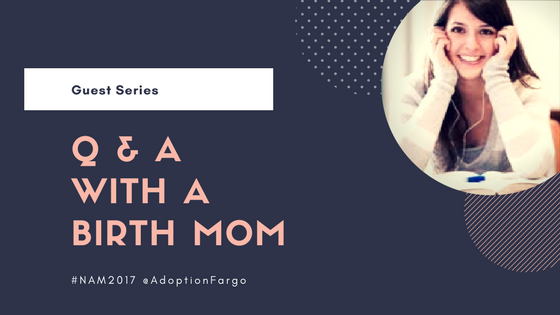
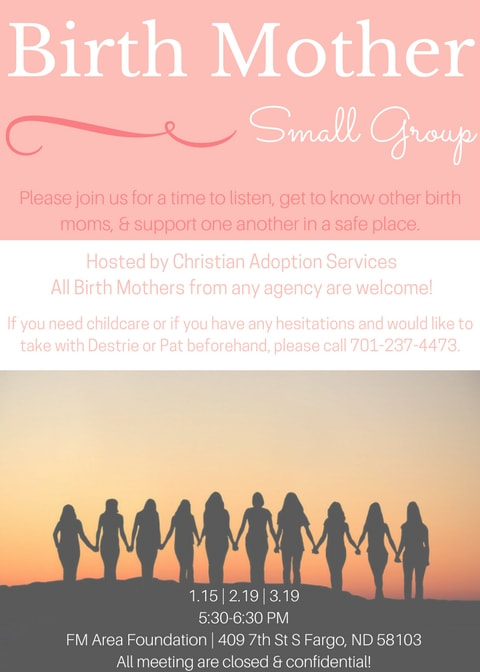
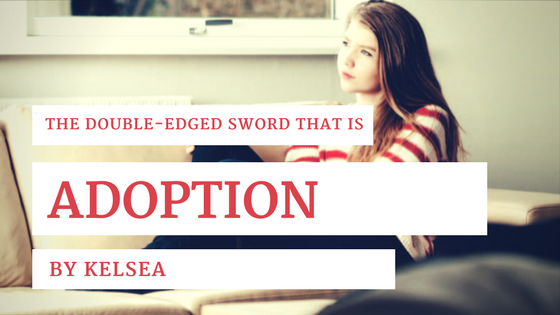
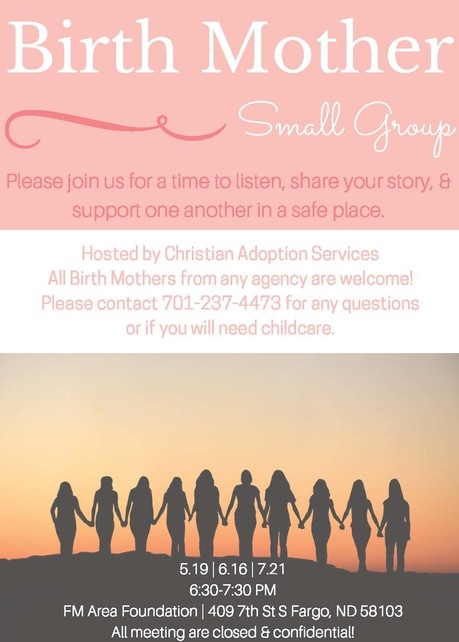
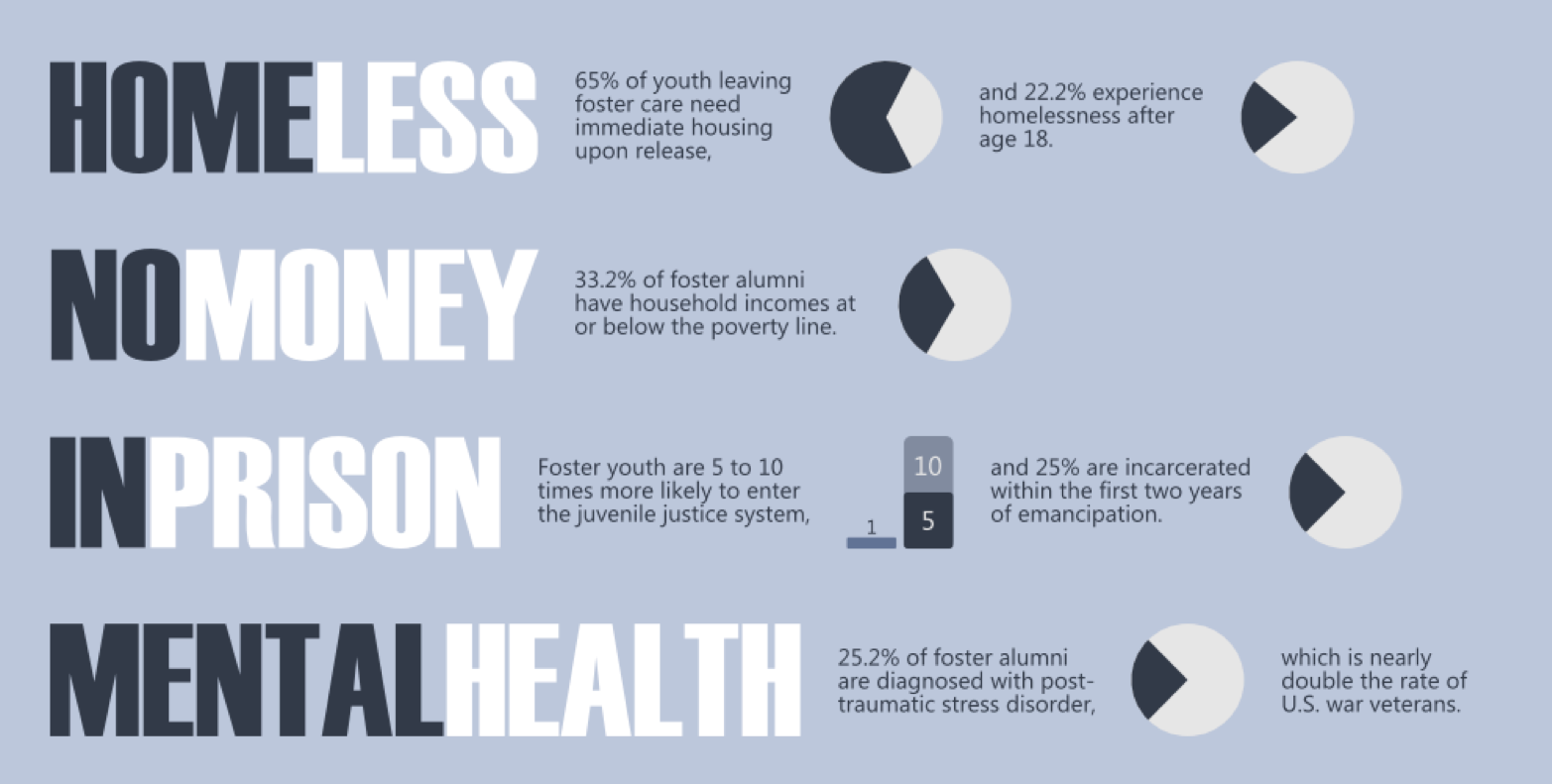
 RSS Feed
RSS Feed
